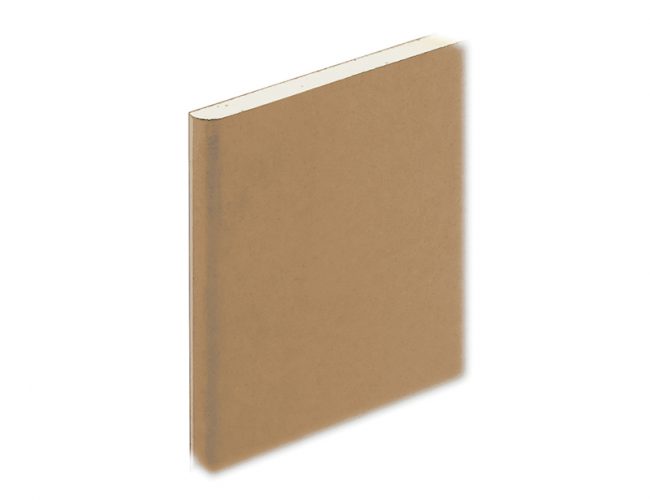
7 Things That You Should Be Aware Of Prior Setting Of Insulation
Find out about Rockwool’s structure and other attributes to ensure that you receive the most benefits out of the insulation. Fibreglass insulation is an extremely popular option to reduce heat transfer in ceilings and walls external pipe insulation.
Dry lining materials, which is an insulation substance, has been utilised often in residential and commercial constructions. Fibreglass insulation can provide an additional benefit by creating an infrared coating between the exterior and interior walls. But, it’s not as efficient as Rockwool’s natural properties.
It is distinguished from fibreglass by its heat-retention, fire resistance, and water resistance. Read on to find out details about Rockwool insulation.
The Rockwool Ingredients Are Made Of Rocks Which Have Been Heated To Create Lava-Like Liquid.
Rockwool insulation’s process of manufacturing is the reason for its ability to resist fire. It’s mostly made up of basalt, and a repurposed byproduct of the process of making steel called Slag.
The components are then superheated to melt and mix into a liquid that appears like the appearance of lava. These components must be heated until they reach a melting point of greater than 2,900°F.
The superheated liquid is spun in a huge spinning machine. These fibres will be collected and formed into a mat that is made into slabs using Rockwool insulation.
This leads to dry lining insulation having no organic material which dramatically enhances the product’s resistance to mildew and mould.
It Is Made Up Of Between 16 And 75 Percent Recycled Materials.
This confusion is explained by the statistics of mineral wool insulation. Rockwool, brand-specific mineral wool insulation is so well-known, it’s become associated with the mineral wool.
Insulation for pipes in the form of external pipe insulation is made of recycled materials. The manufacturer claims that Rockwool insulation is composed by reusing 16-40% of materials.
It’s not easy to verify this assertion because, while it is true that the Department of Energy distinguishes between traditional ‘rock wool’ insulation’ and slag wool insulation, it doesn’t make mention of the distinctions in the recycled materials used in the various products.
It is possible to conclude that Rockwool insulation doesn’t contain the exact quantity from recycled content. This is due to the fact that each product is unique. The standard Rockwool insulation may only comprise 16-40% recycled content and Slag Rockwool insulation can contain up to 75 percent.
The Rockwool Is Extremely Heat-Resistant
Although both fibreglass and outdoor pipe insulation can keep your home cool and comfortable during summer, Rockwool can be more efficient at keeping your home warm in the winter.
However, its thermal efficiency is higher than Rockwool. Insulation made from Rockwool is rated between 3.0 between 3.0 and 3.3 for each square inch. Fibreglass insulation is able to provide an R-value of 2.2 up to 2.5 in a square inch.
As the fibreglass insulation begins to diminish, it reduces its thermal effectiveness. Rockwool insulation’s thermal properties are steady throughout its lifespan due to its construction process and the materials used. It is costlier per sq ft than fibreglass insulation.
The Material Is Able To Withstand Fire Up To 1,400 Degrees Fahrenheit
Rockwool insulation, which is made up of an amalgamation of steel slag and rock, is required to be heated to higher than 2900 degrees F. This is essential for the elements to blend and create this insulation.
It’s natural that mineral wool products repel fire, heat and flames up to 1,400°F and Rockwool products are able to endure temperatures as high as 2,150degF without burning, melting or sparking.
This reduces flame spread. Acoustic insulation made of duct insulation is extremely resistant to heat and melts at temperatures of around 1,100°F.
Rockwool Insulation Is Extremely Durable.
The material used for insulation has incredible longevity. It is able to maintain the efficiency of its heating for years without losing its R-value.
This is because of Wall insulation made of rockwool using steel slag and rocks as its raw materials. They are well-known for their strength and durability, as well as natural resistance to corrosion and decay.
The insulation’s ability to retain heat isn’t the only factor that makes it tough. The insulation made of rockwool is popular for its outstanding waterproofing and anti-mould properties.
This is especially true for the insulation’s water-resistant properties that prevent it from taking and holding in moisture from humid air. This can lead to premature breakdown of the material.
Rockwool Insulation Is Perfect For Rooms That Need To Be Soundproofed.
The insulation made of rockwool is more dense that fibreglass insulation. But, it slows the transfer of heat and decreases sound waves. The material slows down sound waves when they try to travel through it, but sometimes it blocks them completely.
This provides built-in soundproofing. Its thickness may block out noise, however the rockwool insulation’s density creates soundproofing.
Fibreglass insulation has the ability to lower the sound level by as much as 4-10 decibels. Thicker material that weighs between 0.5 to 1.0 tons for each cubic foot. It is a thick insulation that weighs 1.7 tons per square inch. It is able to dampen sound by as much as 10-15 decibels.
Rockwool Protects Against The Growth Of Mould By Allowing Moisture To Escape.
The structure and composition of Rockwool makes it suitable for high humidity spaces like bathrooms and kitchen.
It is resistant to moisture and vapours permeability, which means that liquid water will not get into the isolation however it will flow out. However, gaseous vapour from water flows through the insulation, without dampening it.
The Value And Benefits Of Industrial Acoustics In Cryogenic And Cold Applications
Industrial processes are usually noisy due to the equipment and methods employed to manufacture and process (petro) chemicals generally include high-pressure and high-temperature equipment.
The process may generate an excess amount of noise which can be detrimental for workers and the surrounding environment. Owens Corning has multiple Acoustic insulation slab solutions that aid in the reduction of noise generated by processing equipment and pipes.
What Is The Reason To Be Concerned About Industries Acoustics?
Industrial processes can be extremely and loud, as the activities and equipment used to manufacture and process (petro) chemicals generally comprise high-temperature and high pressure compressors, pumps blowers coolers and agitators, with a few barriers that keep the sound from the equipment from crossing the limits of installation.
The introduction of rigorous health, safety and environmental laws has led to the consideration of the possibility of implementing noise control for industrial operations.
The regulations are designed to ensure that workers’ hearing protects the worker from being exposed to high sound levels that could lead to permanently impaired hearing. (Work environments often exceed that 80-87 decibel (A) limit and require workers to wear hearing protections.)
Insertion Loss And ISO Test Method ISO Measurement Method
In a similar way to loss in transmission of sound in the same way as insertion loss, the amount of sound that the insulation block transmits when it passes through the insulation. In the sense of insertion loss, it is the difference in the power of sound in an uninsulated pipe.
The test method used to determine the loss of the insertion will depend on the method of test used ISO Acoustics. The ISO standard was created to help engineers identify the proper insulation thickness and type in order to achieve a guaranteed noise reduction.
The standard is divided into three types of acoustic insulation. They are classified as A, B and C in relation to the specifications for the loss of the insertion. Alongside this standard is the one called “D,” designed by one of the biggest natural gas and oil producers.





